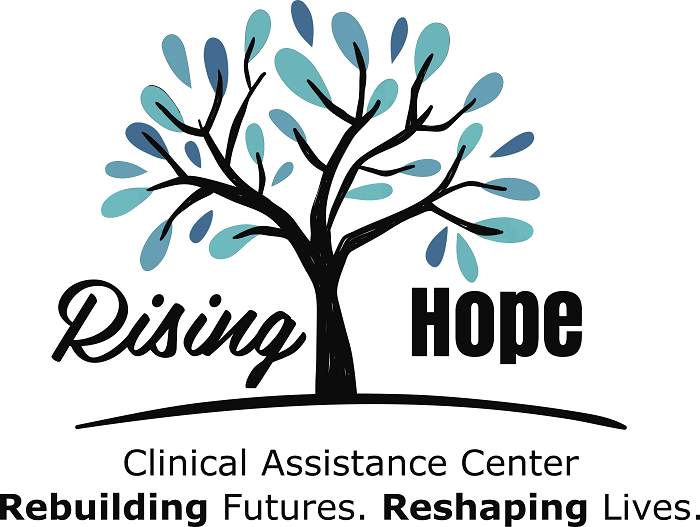Frequently Asked Questions
How can I evaluate whether therapy is working?
As you begin therapy, establish clear goals with your therapist.
After a few sessions, it is a good sign if you feel the experience is a joint effort and that you and your therapist enjoy a healthy relationship. Alternatively, you should be open with your therapist if you find yourself feeling “stuck” or lacking direction once you have been in therapy a while. If you think that your therapist is not a good fit for you, please let us know, and we can find one that can better meet your needs.
We recommend that you spend time with your therapist to review your progress periodically. Although other considerations are affecting the duration of therapy, success in reaching your primary goals should be a significant factor in deciding upon ending therapy.
What is the cost per session?
The cost-per-session is dependent on your insurance.; however, we offer a Sliding Scale Application for you to verify your needs. Contact us for more details.
What is a sliding scale?
A Sliding Scale is a process in which we charge you based on your income in the case that you are not able to afford the full price.
What can I expect from the first session?
Your first session will consist of an assessment and evaluation only. Please be prepared to be asked many questions. Your answers will allow your therapist to see how your specific needs can be met and what forms of assistance would be most suitable for you.
How long does therapy last? How will I know when I am done?
The length of your therapy will depend on your personal goals. We offer therapy solutions ranging from brief to long-term therapy following your needs and desires. Each individual's needs will vary; you and your therapist will determine when you conclude therapy if you feel that you have reached your goals and your needs have been met.
What types of services do you offer?
We offer many forms of assistance from outpatient therapy to e-therapy, family counseling, stress management, child counseling, and much more. Please refer to our services page for more information on the kinds of services that we offer.
What happens after I book an appointment? Will I receive a confirmation email or follow-up call before my appointment time?
After you book an appointment, you will receive a confirmation email.
Do you offer distant therapy services to those out of state?
We only offer services in North Carolina and Georgia.
If I want to know more about the process and what you offer, can I call or walk in?
If you would like to receive more information about our services, our process, or how to get started, please give us a call at 888-446-7301. We are happy to help.
Do you accept walk-ins?
Yes, we accept walk-ins.
Where are you located?
Our clinic is located in Winston-Salem, North Carolina.
Are you on call for emergencies?
If you or a loved one is experience a mental health emergency, please call 911. We do not offer emergency on-call support. If you or are in need of assistance or need assistance for someone in a crisis, we can refer you to the best point of contact for your needs. If you or a loved one are suicidal, call the National Suicide Prevention Hotline at 1-800-273-8255.
Should I prepare for my first therapy session?
We recommend for your first therapy session that you be prepared to be as open as possible. Be open to asking or being asked uncomfortable questions. Progress is often achieved by allowing yourself to get out of your comfort zone. In addition, you should come into your first session with an idea of what you would like to get out of therapy. This aim will be a valued starting point and the catalyst for your therapy sessions.
Lastly, don't be hard on yourself. It is okay to feel awkward and uncomfortable, especially if this will be your first time receiving therapy.
How can therapy help?
Therapy can help you attain a better understanding of yourself, your goals, and your values. It helps develop the skills you need to improve your relationships and improve listening and communication skills. Therapy assists in changing unhealthy behavior patterns while developing new, beneficial ones, and improves overall self-esteem and self-confidence.
Therapy is also helpful in managing anger, stress, grief, or depression. It can help you find new ways to solve interpersonal conflict with your family. Whatever your goals are, or what areas in your life you would like to see improvements in, therapy is a great option to get you there.
Is therapy only for people with mental illnesses or major problems?
Therapy is for everyone. It can be helpful for people trying to improve their work-life balance or adjust to a transition in their life, such as marriage or parenthood. It can also be beneficial for people who need to define their goals for their business or need a brief solution to seemingly smaller concerns. Whatever the case may be, therapy is there to give you a new perspective and guide you in the right direction.
What do I need to bring to my first session?
In your first session, you will need to bring a legal form of identification, your insurance card, if applicable, as well as information on any medications you may be taking or allergies you may have.


